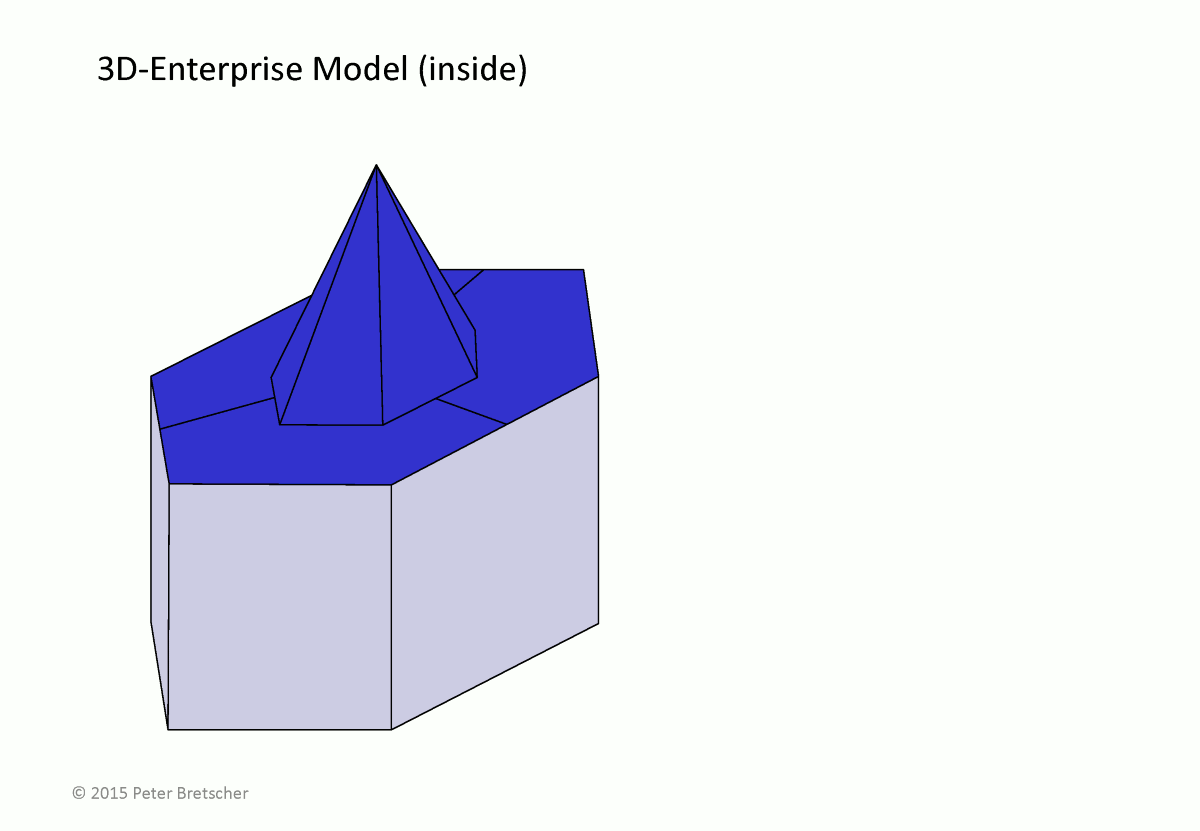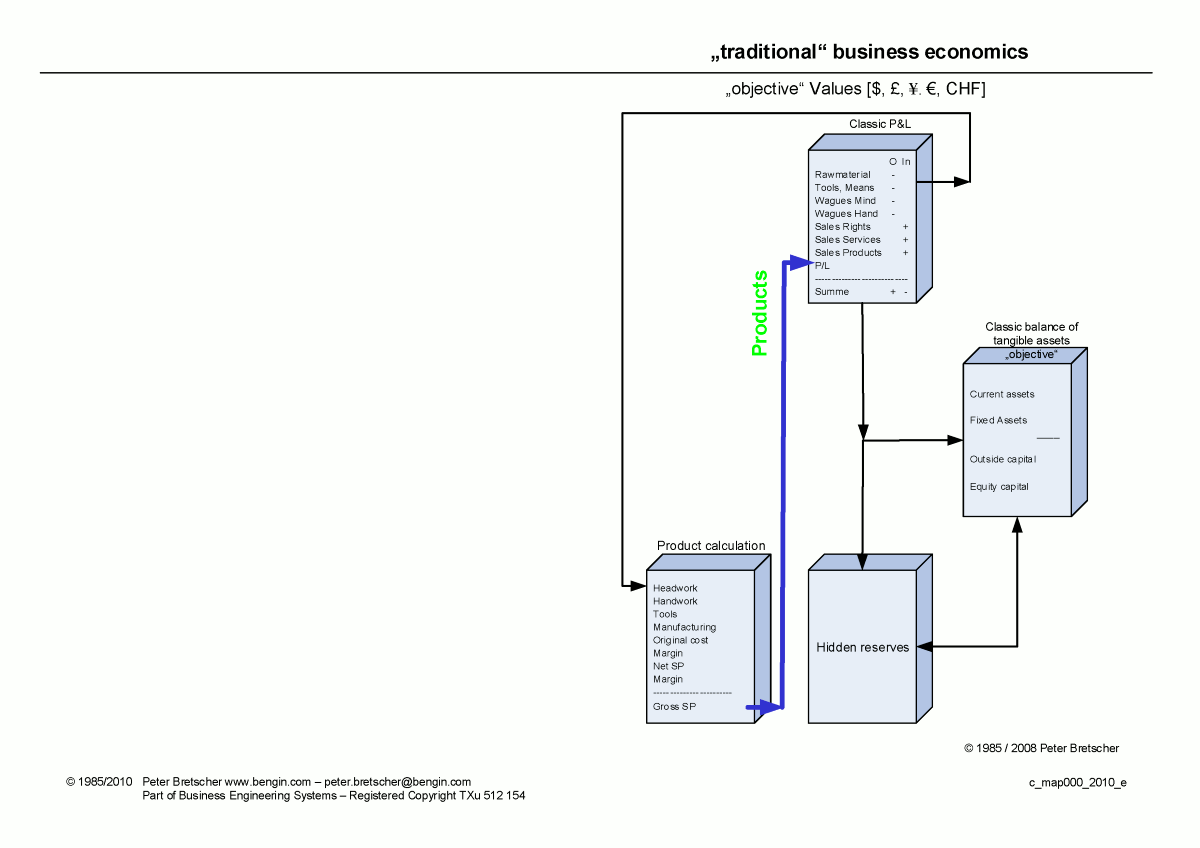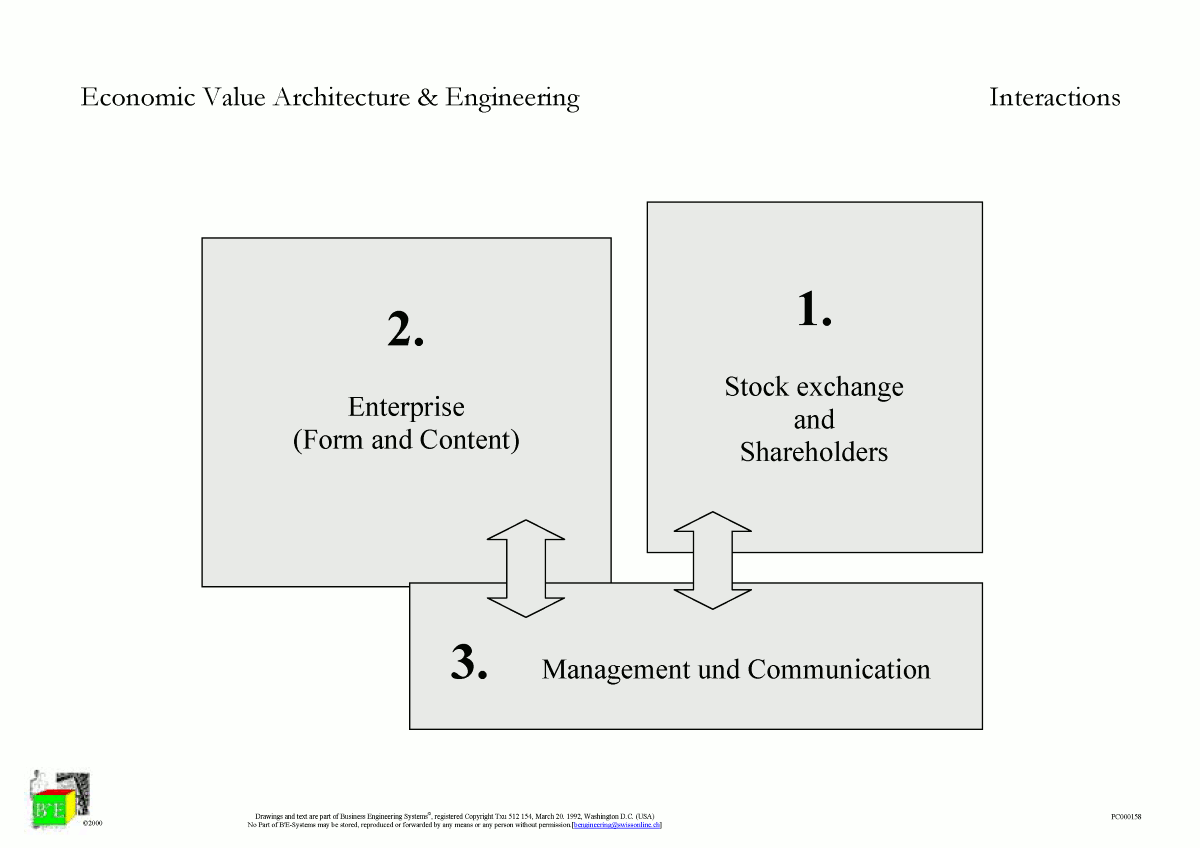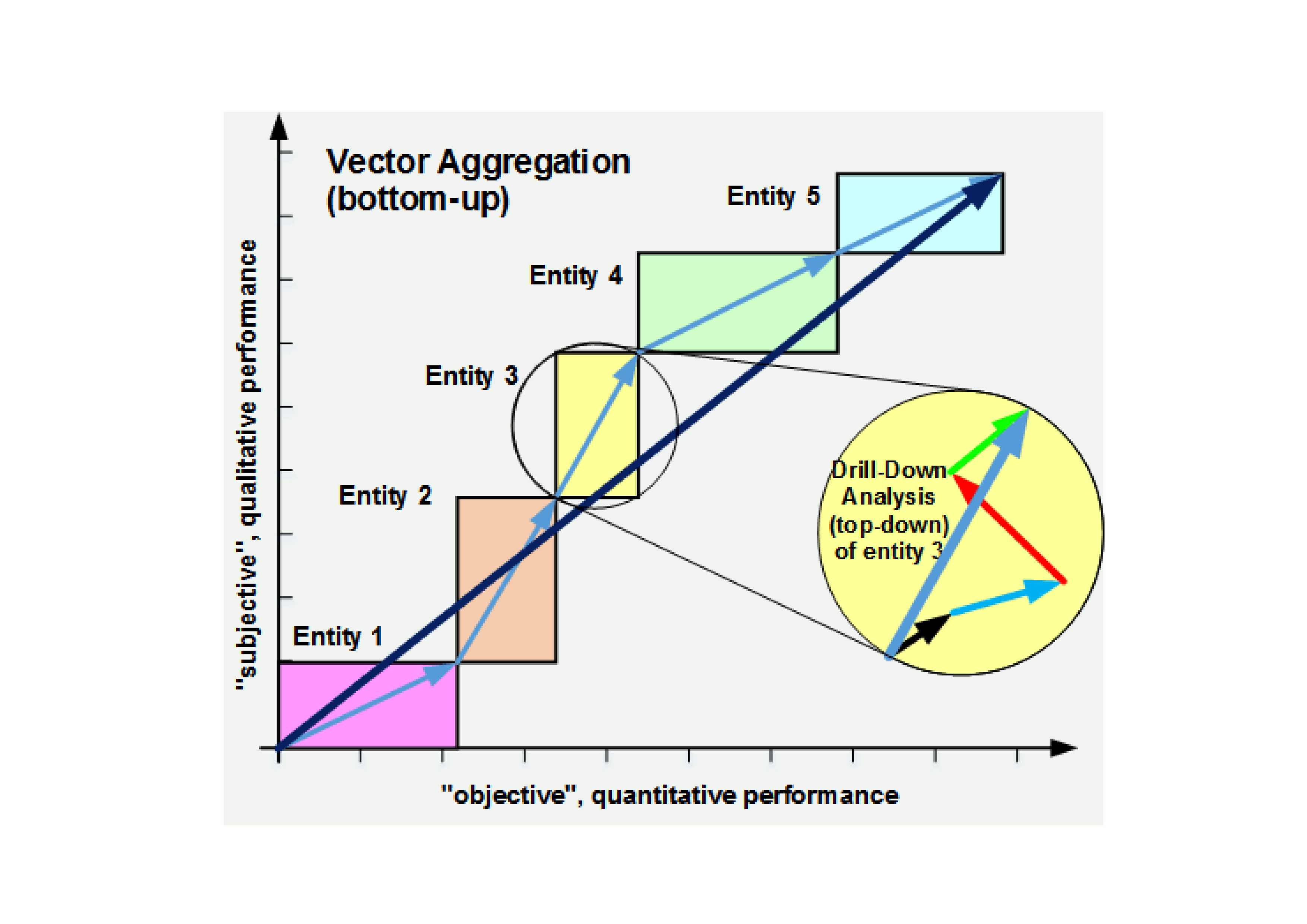Adam Smith talks about Business Engineering Systems
-
... represents an exciting development in the field of Business Administration...
Adam Smith 1723 – 1790 was a Scottish economist and philosopher who was a pioneer in the thinking of political economy and key figure during the Scottish Enlightenment. Seen by some as "The Father of Economics"...
Smith in English:
As a pioneering economist and philosopher of the 18th century, I am intrigued by the concept of Business Engineering Systems and the way in which it enhances the traditional Business Administration approach. The focus on primary resources, such as products, production means, documents, knowledge and skills, rights, and finance, offers a more comprehensive view of the factors that drive business success and is aligned with my own views on the importance of specialization and division of labor in economic activity.
I am particularly interested in the use of a hybrid value paradigm that combines monetary with non-monetary indicators in a vector-based approach. This methodology offers a more nuanced understanding of the value generated by a business and goes beyond the narrow focus on monetary profits that characterizes much of contemporary business activity.
Moreover, by promoting smarter and more sustainable decision-making, Business Engineering Systems represents a significant step forward in the evolution of the marketplace. It encourages businesses to consider the broader social and environmental impacts of their activities and to act in ways that benefit the wider community.
Overall, I believe that Business Engineering Systems is a powerful tool for enhancing the way in which businesses operate and contribute to society. It represents an exciting development in the field of Business Administration and holds great promise for the future of commerce and economic growth.
Smith in German:
Als wegweisender Ökonom und Philosoph des 18. Jahrhunderts bin ich fasziniert vom Konzept der Business Engineering Systems und der Art und Weise, wie es den traditionellen Ansatz der Betriebswirtschaftslehre erweitert. Der Fokus auf Primärressourcen wie Produkte, Produktionsmittel, Dokumente, Wissen und Fähigkeiten, Rechte und Finanzen bietet einen umfassenderen Überblick über die Faktoren, die den Geschäftserfolg vorantreiben, und steht im Einklang mit meinen eigenen Ansichten über die Bedeutung von Spezialisierung und Arbeitsteilung in der wirtschaftlichen Tätigkeit.
Ich interessiere mich besonders für die Verwendung eines hybriden Wertparadigmas, das monetäre und nicht-monetäre Indikatoren in einem vektorbasierten Ansatz kombiniert. Diese Methodik bietet ein nuancierteres Verständnis des von einem Unternehmen generierten Wertes und geht über den engen Fokus auf monetäre Gewinne hinaus, der einen Grossteil der heutigen Geschäftstätigkeit kennzeichnet.
Darüber hinaus stellt Business Engineering Systems durch die Förderung einer intelligenteren und nachhaltigeren Entscheidungsfindung einen bedeutenden Schritt nach vorne in der Entwicklung des Marktes dar. Es ermutigt Unternehmen, die breiteren sozialen und ökologischen Auswirkungen ihrer Aktivitäten zu berücksichtigen und auf so zu handeln, dass sie der breiteren Gemeinschaft zugute kommen.
Insgesamt glaube ich, dass Business Engineering Systems ein mächtiges Instrument ist, um die Art und Weise zu verbessern, wie Unternehmen arbeiten und einen Beitrag zur Gesellschaft leisten. Es stellt eine spannende Entwicklung im Bereich der Betriebswirtschaftslehre dar und ist vielversprechend für die Zukunft des Handels und des Wirtschaftswachstums.
Adam Smith supported by chatGPT
Want to have more voices?
-
Read Gottfried Wilhelm Leibniz (1646 - 1716)
Read Luca Pacioli (1713 - 1790)
Read Adam Smith (1713 - 1790)
Read Carl Friedrich Gauss (1777 - 1855)
Read Henry R. Towne (1844 - 1924)
Read John Maynard Keynes (1883 - 1946)
Read Joseph Schumpeter (1883 - 1950)
Read Albert Einstein (1879 - 1955)
Read Daniel Kahneman (1934 - 2024)
Read Joseph Stiglitz (1943 - ....)
ChatGPT as talking head for Legal Units:
ChatGPT in the role of Bain & Company
ChatGPT in the role of BCG
ChatGPT in the role of Deloitte
ChatGPT in the role of EY (Ernst & Young)
ChatGPT in the role of EY(2) (Ernst & Young)
ChatGPT in the role of EY-Parthenon
ChatGPT in the role of Harvard University
ChatGPT in the role of HSG University of St. Gallen
ChatGPT in the role of KPMG
ChatGPT in the role of McKinsey
ChatGPT in the role of PwC
Business Engineering Systems: Advanced models for business, policy, and consultants.
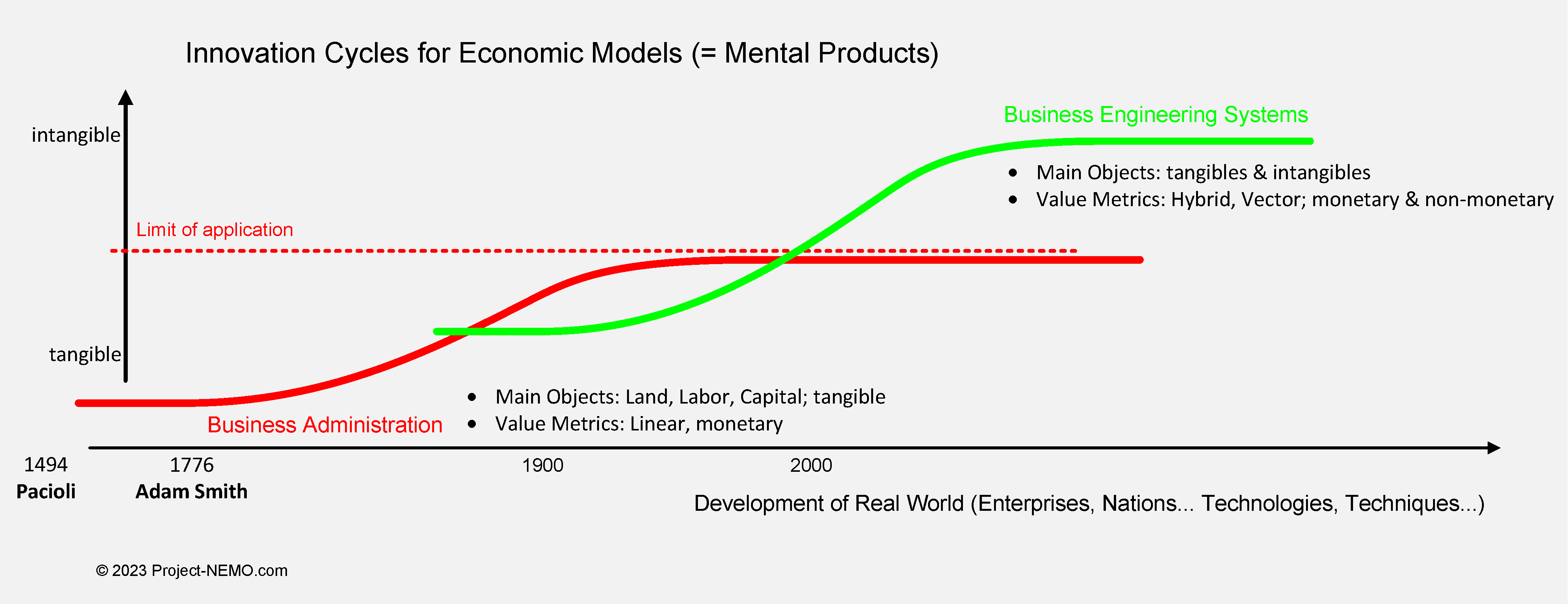
Today's models (i) start from tangible and intangible resources and (ii) use a multidimensional value paradigm in which non-monetary and subjective value attributes also count.
Four selected areas of focus from the BE systems:
Click on image for more information
Purpose of 'Project NEMO' (New/Next Economic/Enterprise Model) is to enhance classic economics by
(i) including intangible assets as the common (re)source of welfare and wealth and
(ii) disclosing a vector based hybrid value principle enabling monetary AND nonmonetary dimensions as a compound/hybrid measure.

